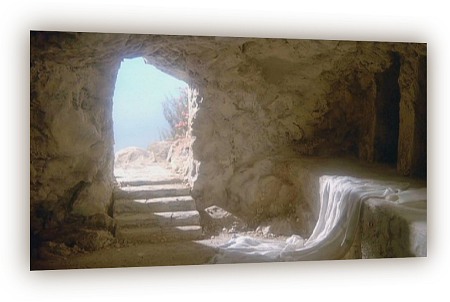 With my little transistor radio in hand, I followed every pitch. I heard the crack of the bat as Hank Aaron hit a deep fly ball. I was sure he had ended Ken Holtzman’s bid for a no-hitter; I remember the disappointment in the voice of the radio announcer as he described what he believed would be a homerun for Aaron. However, the wind was blowing in that day at Wrigley Field.
With my little transistor radio in hand, I followed every pitch. I heard the crack of the bat as Hank Aaron hit a deep fly ball. I was sure he had ended Ken Holtzman’s bid for a no-hitter; I remember the disappointment in the voice of the radio announcer as he described what he believed would be a homerun for Aaron. However, the wind was blowing in that day at Wrigley Field.
As Billy Williams, the Cubs’ outfielder, went back to the wall, he seemed to give up on the play. Then at the last second, Williams put up his glove, caught the ball, and preserved the no-hitter. (I later saw a video clip of the catch.)
I thought the Cubs were well on their way to winning the National League pennant that year. However, the New York Mets, not the Cubs, won the World Series in 1969.
Today, 108 years since they last won the World Series, the Chicago Cubs are now the reigning champs! It seems surreal to write those words. Did they really win last night?
If the Cubs had won it all last year, their fans would still be celebrating today. The storyline, however, would not be near as dramatic. Since last night, every mention of the Cubs’ victory contains a reference to the 108 years of waiting.
As believers, we yawn at the mention of waiting 108 years.
The year was approximately AD 50. That’s when Paul preached the Gospel in Thessalonica causing many of the people in that town to turn from idols to Christ and as a result, wait for Jesus’ return (1 Thess. 1:9-10).
Yes, it’s been 1,966 years since the apostle preached that message of hope to the Thessalonians and still . . . we wait. The longsuffering Cub fans have nothing on us in terms of waiting.
Waiting for Jesus’ Appearing
Almost every epistle in the New Testament contains a reference to Jesus’ soon return for His church. As the apostles preached the Gospel throughout the Roman Empire, their preaching included Jesus’ future appearing as something that could happen at any moment.
In all their preaching and writing, they assumed we would wait in great expectation of Jesus’ return.
In Romans 8:23, Paul wrote that we as believers “groan inwardly as we wait eagerly for adoption as sons, the redemption of our bodies.” Then in verse 25 he added, “But if we hope for what we do not see, we wait for it with patience.” Notice the emphasis on waiting “with patience” for what Jesus promised us. We believe; we hope for what we do not see; we wait.
In 1 Corinthians 1:7 Paul used the same Greek word for “wait” to describe the believers in Corinth as those eagerly awaiting Jesus’ appearing.
In all their preaching and writing, the apostles assumed we would wait in great expectation of Jesus’ return.
In Philippians 3:20 Paul wrote, “But our citizenship is in heaven, and from it we await a Savior, the Lord Jesus, Christ.” As believers, we live in eager expectation of seeing our Lord at any moment.
Peter instructed his readers to “set your hope fully on the grace that will be brought to you at the revelation of Jesus Christ” (1 Peter 1:13). Peter’s instructions echo Paul’s words on waiting.
The apostle John also emphasized our hope in Jesus appearing as something that would have a purifying effect on us (1 John 3:2-3). James added these words, “The coming of the Lord is at hand . . . . the Judge is standing at the door” (5:8-9).
The New Testament church waited for Jesus’ appearing as something that could happen at any moment. We refer to His return as something “imminent;” it can happen at any time. That was the hope of the New Testament church and nothing has changed since that time to diminish such anticipation, unless you count the passing of a couple thousand years.
Waiting for Justice
Along with waiting for Jesus’ return, we also wait for His justice to prevail in our world.
We frequently hear daily terror attacks somewhere in our world. We read of brutal atrocities committed against believers in places throughout the Middle East and in Nigeria. Scenes of intense suffering as a result of all this violence appear on television and Internet news sites.
The stories of Planned Parenthood profiting from abortion through the selling of body parts grieves me deeply. Does not the Lord see this? How can He let this continue? Where is He?
I’m almost embarrassed to recount the number of times I have needed to go to Psalm 37 for God’s perspective on those things. I did so this morning as I felt stirred by another instance of evil prevailing and needed the reminder of the Psalm.
And what do I find in Psalm 37? The Lord, through David, tells me this, “Be still before the Lord and wait patiently for him; fret not yourself over the one who prospers in his way, over the man who carries out evil devises . . . For evildoers shall be cut off, but those who wait for the Lord shall inherit the land” (vv. 7 and 8).
I have a tendency to fret and hence the need for the Psalm.
Psalm 37 is clear on two things: First, God will surely judge wickedness. Second, we may not see it. This is because Lord patiently allows time for sinners to repent. I’ve benefited from this many times as He graciously gave me time to return to Him in my life as a believer.
So many times I wish the Lord would show up and punish the evil I see in the world. However, I believe that day is coming and in the meantime, I wait. We wait. Sound familiar?
Waiting for the End of Suffering
Tonight, my wife and I are going to the visitation for a baby boy who died earlier this week of cancer at the age of seven months. We do not have to look far to see great suffering in our world. Little Lincoln endured so much pain during the three months in which cancer ravaged his tiny body.
Notice the tender touch of the Savior; the text does not simply say Jesus will end our tears but will gently “wipe” them away from our faces.
In my favorite passage from Isaiah, the prophet tells of a great celebration and foresees a day in which the Lord “will swallow up death forever . . . and wipe away tears from all faces” (25:8). Notice the tender touch of the Savior; the text does not simply say Jesus will end our tears but will gently “wipe” them away from our faces. He is able even now to ease the grieving for little Lincoln.
I love the response recorded in Isaiah 25:9 of those enjoying the feast of this still future day, “Behold, this is our God; we have waited for him, that he might save us. This is the Lord; we have waited for him; let us be glad and rejoice in his salvation.” Someday we will echo those very words as we praise the Lord.
Notice that even in eternity, after all suffering and pain have ended; we will emphasize the waiting as we rejoice in our great salvation.
The Scoffers
The apostle Peter tells us that in the last days some will give up on the waiting and mock our hope in Jesus’ return. In 2 Peter 3:3-4 he says, “Knowing this first of all, that scoffers will come in the last days with scoffing, following their own sinful desires. They will say, ‘Where is the promise of his coming?’”
The Lord knew the wait would be long and many would give up believing in His return and push aside their hope.
We see this all around us today. Many today mock the rapture. They cannot believe the Lord would keep us waiting almost two thousand years for His return. Surely we have misunderstood prophecy; there must be a different interpretation to the passages regarding His appearing.
“Jesus has already returned,” the scoffers tell us, “your hope is not to be found in His return.”
But is this not why Peter warned against such scoffing? The Lord knew the wait would be long and many would give up believing in His return and push aside their hope. He knew scoffers would arise and through Peter warned us about these modern day naysayers.
Today, Chicago Cub fans celebrate the end of a 108 year wait for a World Series victory. Someday, perhaps very soon, we will celebrate the end of a much longer wait, that of waiting for Jesus’ return to take us to His Father’s home (John 14:2-3).
Some old Cub fans, like me, doubted the Cubs would ever win the World Series, However, if there is one thing their victory teaches us, things we wait for can happen.
I am not making that same mistake with Jesus’ return. He is coming again, just as He promised.
When that happens, we will not complain about the wait. But like Cub fans today, we will greatly rejoice that the day has finally arrived.



 Imagine if you will, a man explaining to his fiancé his vision for their future once they are married.
Imagine if you will, a man explaining to his fiancé his vision for their future once they are married. I was terrified! Had they left without me?
I was terrified! Had they left without me? Before settling into my new calling as a writer, my wife Ruth and I decided to take a road trip to celebrate my retirement from a long career as a financial analyst. We greatly looked forward to our trip: to our stay at a bed and breakfast in the mountains near Asheville, North Carolina and then to our time exploring Savannah, Georgia.
Before settling into my new calling as a writer, my wife Ruth and I decided to take a road trip to celebrate my retirement from a long career as a financial analyst. We greatly looked forward to our trip: to our stay at a bed and breakfast in the mountains near Asheville, North Carolina and then to our time exploring Savannah, Georgia. What causes fear in us at times regarding the rapture? Does our apprehension arise from its abrupt nature or its unexpected timing? Does the unknown or the supernatural cause anxiety to rise within us? Perhaps we do not want our dreams for this life to end so soon.
What causes fear in us at times regarding the rapture? Does our apprehension arise from its abrupt nature or its unexpected timing? Does the unknown or the supernatural cause anxiety to rise within us? Perhaps we do not want our dreams for this life to end so soon. I believe the characters of Max and Chloe in The Secret Life of Pets teach us something about our expectancy regarding Jesus’ return for His church. Lest you think I am crazy, let me explain.
I believe the characters of Max and Chloe in The Secret Life of Pets teach us something about our expectancy regarding Jesus’ return for His church. Lest you think I am crazy, let me explain.
 I could think of nothing else.
I could think of nothing else. We have so very much to look forward to when Jesus returns for us. If we are alive at the time of His appearing, Jesus will instantly transform our aging and achy bodies into an eternal body just like His. If we die before the rapture, He will bring our dead bodies to life again never again to be subject to the illnesses of this life or to death (1 Thess. 4:16-17). All this happens amazingly fast, “in the twinkling of an eye” (1 Cor. 15:52). It will all be finished in less time than it takes to blink our eyes.
We have so very much to look forward to when Jesus returns for us. If we are alive at the time of His appearing, Jesus will instantly transform our aging and achy bodies into an eternal body just like His. If we die before the rapture, He will bring our dead bodies to life again never again to be subject to the illnesses of this life or to death (1 Thess. 4:16-17). All this happens amazingly fast, “in the twinkling of an eye” (1 Cor. 15:52). It will all be finished in less time than it takes to blink our eyes.